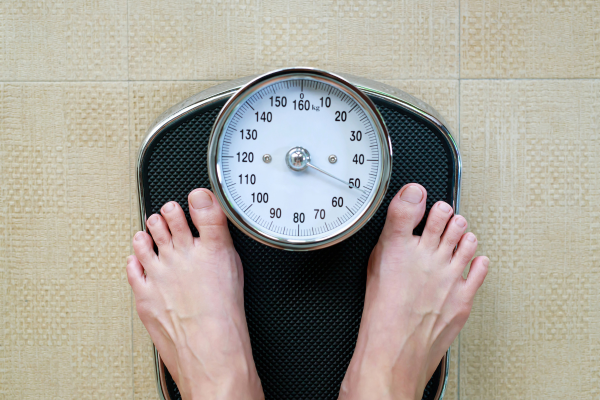How you gain weight is no mystery. You gain weight by consuming more calories than you burn off in the course of a day. The excess calories, if not used by the body for energy, muscle building, or some other metabolic process, is stored as body fat. It’s stored as fat in case there is a future shortage of calories.
Much like you put excess junk you have around the house into a closet for storage, your body stores excess calories you haven’t used as body fat for future need.
The problem is, if you continue to eat the same amount of calories (or more) every day, there never is a future need and your body simply continues to store the excess as fat.
If excess calories are the culprit of weight gain, than the answer to achieving weight loss has to do with calories as well. You have to reverse the process that caused you to gain weight. You have to eat less calories.
I do not necessarily mean eating less food. I mean eating fewer calories, which is different.
There are two ways to have an impact on calorie expenditure in your body. Either eat less calories or burn more of them during exercise. I do not recommend going to extremes on either one of these but rather doing a little bit of both. When you diet and severely restrict calories, your body goes into a defense mode and begins to hold onto stored body fat.
While on a typical “diet” your body senses possible famine and holds onto body fat in case of future need. Also, your metabolism slows down because there’s not as much food to burn through and utilize.

So a drastic, sudden drop in calories is definitely not the way to achieve long term fat loss results.
Besides, how long could you possibly go on a restrictive diet before the feeling of deprivation makes you give in?
That is why diets traditionally do not work. You eat restrictively for a couple weeks and indeed have some success with weight loss.
But soon the diet becomes much too restrictive and you go back to the older, less restrictive way of eating. When the less healthy, less restrictive lifestyle comes back, so does all the weight you lost.
If you are trying to lose fat by dieting, you are always going to be in a position of playing “catch up”.
What I mean by this is, when you come off from a restrictive diet, you are going to “catch up” and eat all of the foods you felt deprived of. Instead of eating moderately and sensibly, the feelings of deprivation cause you to consume much more food than you normally would have if you weren’t dieting.
You’ll lose some weight on a diet and then gain it all back. Hence the term “yo-yo dieting” or “roller coaster dieting”
The solution? Do not eat restrictively and do not ban any specific foods.
I am a big advocate of eating regular, whole foods to lose fat. The foods you eat just have to be in smaller portions.
There isn’t any food you have to give up altogether for weight loss to occur. You just have to moderate and eat smaller portions, more often, for your metabolism to operate efficiently.
End of Article
Now how do you know exactly how many calories you should be eating?
With my Done-For-You Lean Muscle Building Meal Plans I walk you through the easy steps of choosing the correct calorie plan. You get 24 different calorie plans that are each 84-days long.
Why This Works:
1. All your meals are planned for you so you don’t have to figure it out.
2. If you don’t like a food just use the substitution chart.
3. These meal plans are not restrictive and won’t leave you feeling hungry.
4. You’ll save money by only buying the groceries on your shopping list for the week.
5. They were designed by a professional nutritionist friend of mine that works with pro athletes.
http://www.criticalbench.com/CNP/muscle-building-nutrition.htm — << Highly Recommended








Great post. I have some personal experience with this so can validate all this. Furthermore, I have given advice to friends which resulted in positive results for them as well. Most of my fiends (myself included) try to loose fat by restrictive dieting. My advice was to eat right / normal / clean and workout and fat loss will take care of itself. Most people who actually tried it had great success and told others. I think this concept is commonly misunderstood because it is almost counter intuitive – eat ‘more’ loose weight – does not make sense at first. The explanation above does a great job making sense of it through the science. Thanks!